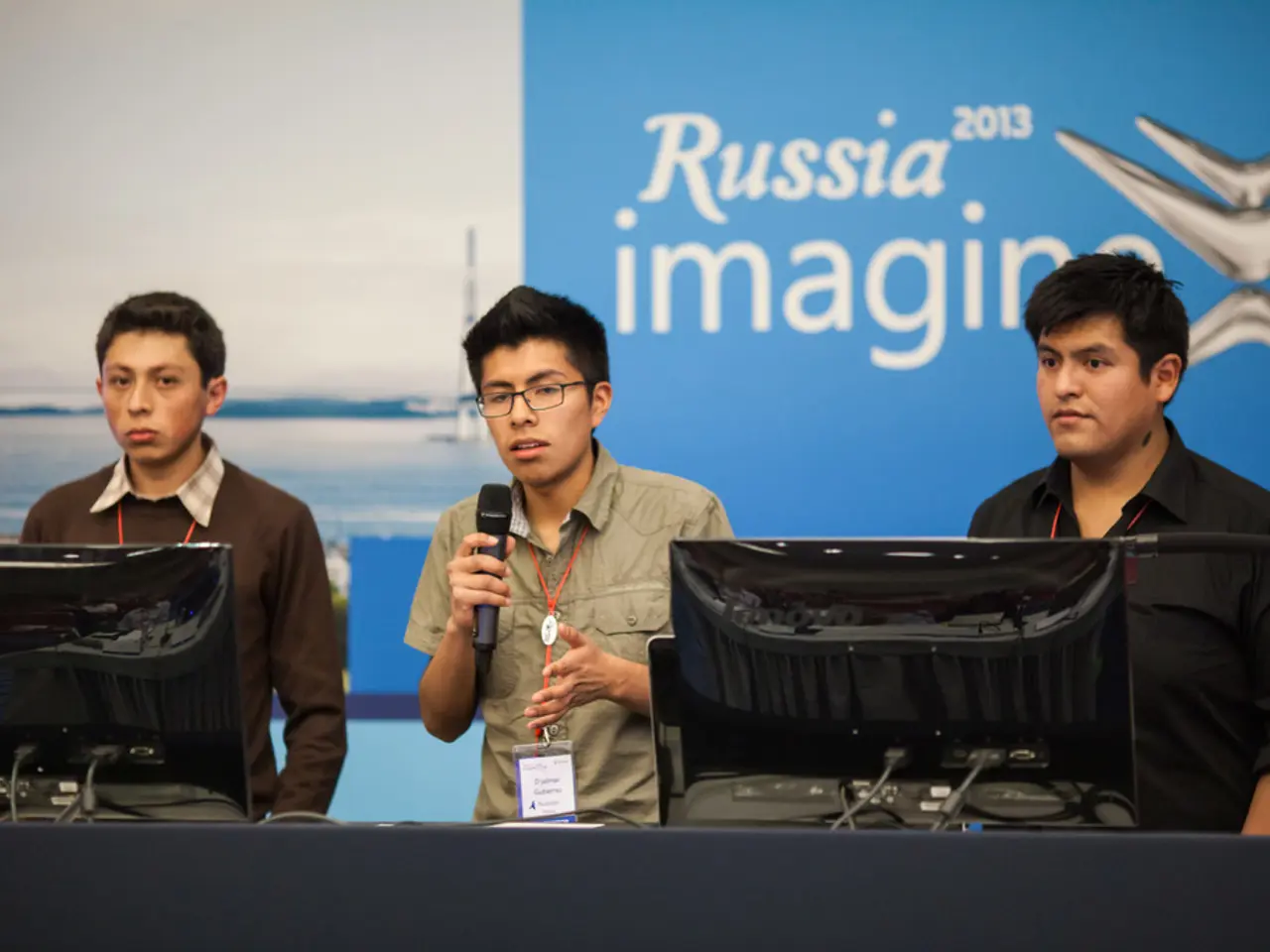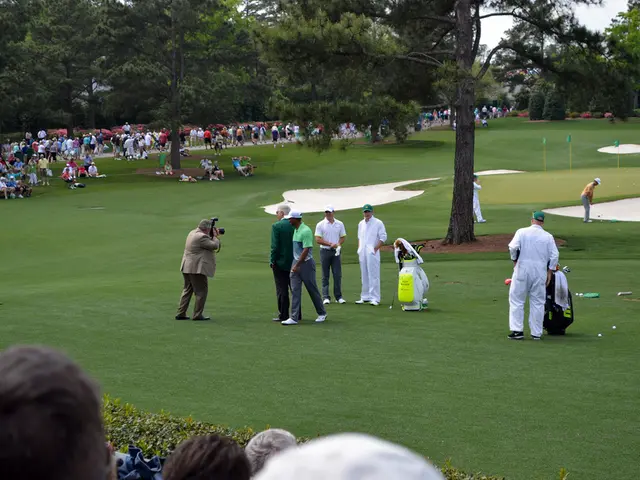Zelenskyy seeks to caution Trump against trusting Putin before their upcoming Alaska encounter
In a series of diplomatic moves, former U.S. President Donald Trump has engaged with European leaders and Ukrainian President Volodymyr Zelenskyy to discuss the ongoing Russia-Ukraine conflict. However, there is no clear evidence that Zelenskyy has successfully convinced Trump to adopt a strong position of mistrust towards Russian President Vladimir Putin.
Prior to Russia's first invasion of Ukraine in 2014, Putin repeatedly asserted that he had no intentions of attacking Ukraine. Yet, by the end of 2021, Western intelligence authorities were intensifying their warnings that Russia was preparing for another invasion.
Trump's stance appears more hopeful and geared towards negotiation rather than outright distrust. He has shown some willingness to arrange a meeting between Putin and Zelenskyy, indicating a hope for flexibility on both sides. However, Trump's approach has been criticised by some Ukrainians as overly conciliatory, even amounting to a "red carpet" treatment for Putin, which caused dismay in Kyiv.
Experts recommend that Trump apply more pressure on Russia through sanctions and arms supplies to Ukraine to make it harder for Putin to continue the war. Trump has threatened to impose secondary tariffs on Russia's trading partners if the Kremlin doesn't agree to a ceasefire.
Despite Trump's calls for a meeting with Putin and Zelenskyy, Russia responded by appointing senior officials instead of agreeing to the summit as proposed. This move did not seem to go over well with Trump, who accused Zelenskyy of not showing gratitude and ultimately not wanting Russia's war to end.
The joint statement issued by the leaders of France, Italy, Germany, Poland, Finland, and the European Commission supports Trump's efforts to end Russia's all-out war against Ukraine. The statement reaffirms the commitment to the principle that international borders must not be changed by force. It also emphasises that meaningful negotiations can only take place in the context of a ceasefire or reduction of hostilities.
Trump's relationship with Putin has been marked by a series of contradictions. While Trump has accused Putin of fooling many presidents before, including Clinton, Bush, Obama, and Biden, he has also called Putin on occasions, such as after Russia's serial attacks on Kyiv in April, to urge him to stop.
However, Trump has refused to say whether he wants Ukraine to win Russia's war of aggression during the 2020 presidential elections in the U.S. Putin, on the other hand, has denied the presence of Russian troops in Crimea and eastern parts of Ukraine in 2014, despite evidence to the contrary.
In a surprising turn of events, Trump called Zelenskyy a "dictator without elections", partially repeating the Kremlin's narrative. This statement was met with criticism, as Zelenskyy was democratically elected.
As Trump and Putin prepare to meet in Alaska on 15 August, the future of the Russia-Ukraine conflict remains uncertain. Europe's top politicians continue to stand firmly by the side of Ukraine, emphasising their commitment to the principles of peace and sovereignty.
[1] Source: Newsweek [2] Source: The Guardian
Read also:
- Court petitions to reverse established decision on same-sex marriage legalization
- Chinese Ambassador issues stern message to India regarding Trump's tariffs in midst of escalating trade feuds
- Potential Consequences Following the Baku-Yerevan Joint Declaration Signing in Washington
- Daily Perspectives on Donald Trump's Presidency





